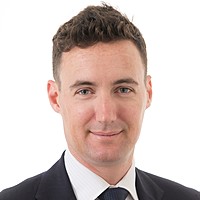What it would take for the ASX to get to 9,000

Ellerston Capital
It’s mid-2021. The ASX is at 9000. The Australian Financial Review front page is covering the short march to 10,000.
There are the usual comments from fund managers talking about how the market has gone too far and they are sitting in cash for the impending correction. There may even be some references to the market being driven by retail investors who “don’t get it”.
With the S&P/ASX 200 index going through 6000 this week, I decided to flip the first digit and started to think of a world of 9000. There’s already more than enough pieces on why the market is going down.
Back in high school, lacking both high levels of coordination and physical size, I ended up picking cross country and middle-distance running as my sports. One of the coaches was particularly keen on “visualisation” as a technique ahead of races.
Visualisation is a well-known sports psychology technique, where you think about how you’d feel at certain point, visualise your race in your head in advance; thinking through each part of it; living it in your “mind’s eye.”
Over the years in my investing career I’ve found this technique particularly useful around big exogenous events, where it’s easy to become part of the narrative and not see other paths. It helped just after the global financial crisis (GFC) when I was stuck on a bearish narrative in 2009.
Now, I believe, is the time to revisit visualisation. The starting point is to think of yourself talking to a friend in a year’s time about an event you currently think is implausible.
Importantly, try to think of what some of the pre-conditions that would be needed for that event to come true, which of course with humans’ hindsight bias, would be “obvious”.
The path to 9000
What would we need for 9000? First and foremost I’d nominate very loose monetary policy.
If we’ve learnt anything in the last 30 years it is that, whilst free money may not create consumer price inflation, it sure as heck helps get asset prices up. Hello, yield curve control, where the Reserve Bank of Australia has committed to pining interest rates to near zero.
You’d also probably need the economy to stabilise and perhaps exceed expectations, though GDP doesn’t need to be great. In fact, a strong recovery may be an issue as would threaten loose money policy.
The risk in the next six months is that things return to normal at a faster pace than expected. A “second wave” becomes much less likely if there is no community transmission.
There would need to be space for marginal buyers in the coming months – someone has to bid the market up after all. With the Merrill Lynch Fund Manager Survey sitting near 0/10, i.e. maximum bearishness, the current rally is one bereft of professional investors.
There is plenty of room for professionals to add to stock holdings. There’s also plenty of money to flow from asset allocators who have ploughed money into bonds at the peak of the pandemic.
And as the icing on the cake – you would need a bit of froth in the market.
At 9000 the valuation of the ASX will look stretched for institutional investors. That means we will need “tourists” – a term used to describe investors who don’t normally “live” in a certain market.
Retail investors could be the candidates for direct equities. Whether it’s from boredom, lack of yield alternative or lack of sports gambling, retail investing has exploded for the first time since the GFC.
And they’ve wiped the floor with institutional investors. They’ve made a lot of money and once someone tastes success, they usually want more. I can see this group buying the dips from here.
Put together, this may be 1999. I must say it feels implausible even writing that, given the recession we’re currently in and GDP well below trend with rising unemployment.
All this isn’t my base case and you can argue a lot of this is reflected in the price already. But few, if any, investors would have predicted eight weeks ago that we’d be here.
Our job is to see the world as it is, not as we think it should be. Closed minds at times like this are costly minds.
Never miss an insight
Stay up to date with my latest thoughts by clicking the follow button below.

Chad co-founded Morphic Asset Management in 2012. As a stock picker Chad is also a generalist but has strong regional knowledge of Europe and the Americas. He has also been awarded the CFA Charter.

